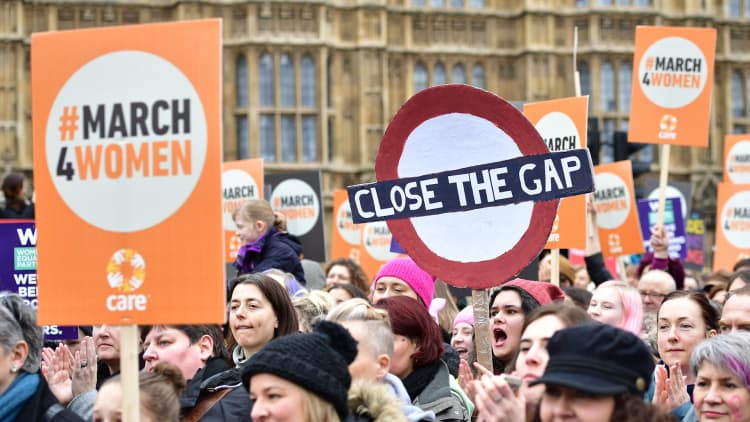U.K. businesses may be forced to publish their ethnicity pay gap data under plans unveiled by the country's prime minister.
Theresa May launched a consultation this week on what information employers should publish to help address the "significant disparities" in pay among ethnic minority and white employees.
The new consultation will also ask employers how ethnicity data can be collected without burdening businesses. It comes after the British government introduced mandatory gender pay gap reporting for companies with more than 250 employees in 2017.
According to the prime minister, the move follows on from a pledge the government made to "explain or change ethnic disparities in all areas of society."
"Every employee deserves the opportunity to progress and fulfil their potential in their chosen field, regardless of which background they are from, but too often ethnic minority employees feel they're hitting a brick wall when it comes to career progression," she said in a press release.
"Our focus is now on making sure the U.K.'s organizations, boardrooms and senior management teams are truly reflective of the workplaces they manage."
However, one thinktank researcher said the audits would place an unnecessary burden on businesses.
"This is a Pandora's Box," Len Shackleton, editorial research fellow at the Institute of Economic Affairs, told CNBC via email.
"There are over 100 ethnicities in this country, most of which are as different from each other — more so, perhaps — than they are from white Brits."
"If a company has a board member of Indian heritage, this means nothing to someone from Somalia. Forcing businesses to report on pay will result in meaningless statistics because the numbers for particular ethnicities within one firm are likely to be statistically insignificant, where nothing can really be gleaned from them. Essentially the government would be burdening businesses with more bureaucracy without any useful return."

Meanwhile, Solat Chaudry, CEO of Britain's National Centre for Diversity, told CNBC over the phone that there was a strong business case for publishing the data.
"I'm really pleased that the prime minister has put race back onto the agenda," he said. "In some countries race is just not on the agenda. If ethnicity pay gaps are published it will bring some real surprises — it will be on the same sort of levels as the gender pay gap.
He added: "Businesses are crazy to ignore this — the business case is absolutely clear. If you display racism or unconscious biases in your workplace it costs the firm money, and If you've got minority representation in a company's top positions, you can outperform."
Recent research from the U.K.'s Equality and Human Rights Commission concluded that businesses put themselves at a competitive disadvantage by failing to act to reduce pay gaps.
David Isaac, chair of the Commission, told CNBC in an email: "Extending mandatory reporting beyond gender will raise transparency about other inequalities in the workplace and give employers the insight they need to identify and remove barriers to ethnic minority staff joining and progressing to the highest level in their organisations."
Kathleen Henehan, a research and policy analyst at thinktank The Resolution Foundation, also welcomed the plans.
"Our research shows that black and ethnic minority workers continue to face huge and highly damaging pay penalties in the workplace, even when you account for their age, place of work, qualifications and the kinds of jobs they do," she said in an email.
"The government's planned new pay audit is a welcome step towards addressing this issue."

